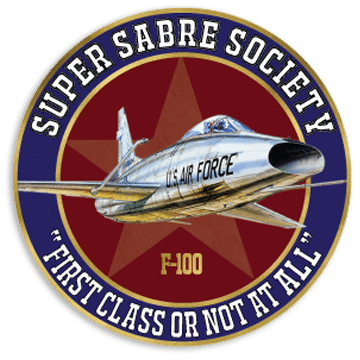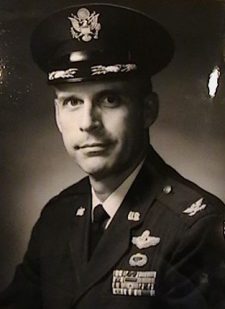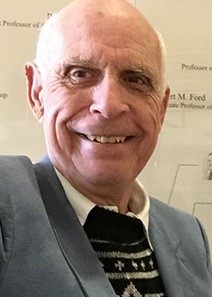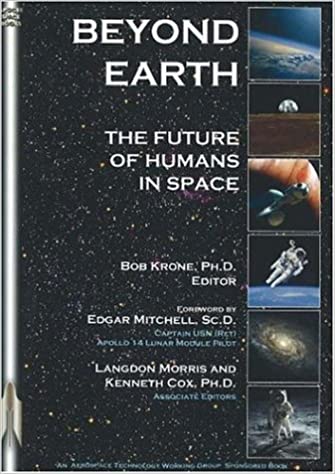“Career Reflections of Bob Krone, PhD, Colonel, USAF (Ret), May 2018”
Every human being has a personal life philosophy. It is formed by a complex mix of genetics, environment, and learning over time… My definition of values – created during my doctoral studies at UCLA – is “Values are principles or things preferred.” Philosophy is oriented toward total life meaning, while values form the components of that totality.
My personal philosophy sources for… 88 years came from a combination of formal education and the U.S. Air Force. Those two sources were continually intertwined as the Air Force taught me to fly its fighter jets—the T-33, F-84F, F-86A, F-100, T-39 and F-105’s—which took me around the world, into continual cultural and ethnic learning environments, taught me about personal risk, and exposed me to the huge satisfaction of flying powerful single-pilot machines and the agonies of losing friends.
The Air Force sponsored my enrollment in my master’s degree, my PhD, the Naval War College Command and Staff School, and the Industrial College of the Armed Forces major education programs, while progressively assigning me to a 23-year series of assignments with increasing challenges, responsibilities, and rewards. I would not change a day of that living and learning experience.
Combat military flying is a unique environment for learning and self-evaluation. When life or death is the outcome, other issues seem trivial. Air Force jet flying, where there is one pilot per airplane, has distinct differences from other forms of combat. Teamwork is just as important as in ground combat or multi-crew airplanes. But being solely responsible for the missions of supersonic machines and doing it in collaboration with other pilots having the same responsibilities, requires a unique set of skills.
That uniqueness is difficult to explain to others but accounts for old fighter pilots being compelled to attend reunions. Bill Hosmer, a former Air Force Thunderbird Team member, retired USAF Colonel, and Wing Commander, who flew the F-105 in the first mission over North Vietnam on March 2, 1965, captured the feeling (at the funeral of pilot colleague Robert V. “Boris” Baird on July 5, 2014) with the comment: “Our group was annealed by the fires from those days in the cockpits over North Vietnam and has stayed in close contact ever since.”
One personal military story held an important lesson for me. Air Force Colonel “Sabre Sams” was the wing commander in Thailand when our 469th Tactical Fighter Squadron was flying F-105 Thunderchiefs over North Vietnam. April 24, 1966, was one of our worst days. Our squadron commander, Lieutenant Colonel Bill Cooper, and Lieutenant Jerry Driscoll were both shot down near Hanoi. That night Colonel Sams told me: “I’m making you the 469th Commander because you have the right combination of brains and guts.” That remains the most meaningful officer-effectiveness report of my 23-year Air Force career. It also added combat leadership to my experience and evolving personal philosophy.
“Learning is the only thing the mind never exhausts, never fears, and never regrets. It is one thing that will never fail us.”-Leonardo da Vinci (1452 – 1519)
That truth convinced me to retire from the Air Force and to devote my career after 1975 to higher education for myself and others.
I have been privileged to be a faculty member for teaching and administration, on a global scale, from bachelors to doctoral levels in three major universities. The third influence has been my global Space community interactions, made possible by Carl Sagan’s convincing NASA in 1979 that it was behind the science and advances in computer science. Along with Dr. Joel Isaacson, I was one of 2 of 37 professionals researching advanced machine intelligence for NASA at the urging of Carl Sagan. We have been university colleagues and friends ever since. Joel’s discoveries, beginning at Goddard Space Center in the 1960s, have placed him as the founder and lead researcher of “Nature’s Cosmic Intelligence.”
That 1980 NASA Summer Research began my involvement with the global Space community that remains today.
Regardless of your own personal philosophy, values, and goals, the sentence my Father, Dr. Max T. Krone, had at the bottom of his stationery applies. The sentence read,
“The greatest use of a life is to spend it for something positive that outlasts it.”
Such is my goal.
Robert M. Krone, Col USAF (Ret) “Headed West” on September 15, 2021.
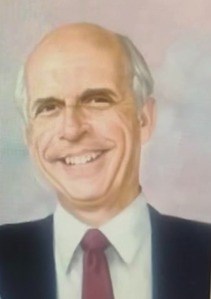 Bob Krone lived every moment of his 91 years to the fullest. After graduating from USC, Bob joined the U.S. Air Force. As part of the 469th Tactical Fighter Squadron, he was the first squadron Commander to complete 100 combat missions over North Vietnam and was awarded the Silver and Bronze Stars.
Bob Krone lived every moment of his 91 years to the fullest. After graduating from USC, Bob joined the U.S. Air Force. As part of the 469th Tactical Fighter Squadron, he was the first squadron Commander to complete 100 combat missions over North Vietnam and was awarded the Silver and Bronze Stars.
While in the Air Force, he earned a Masters in Public and International Affairs (U of Pittsburgh 1965) and a Ph.D. in Political and Policy Sciences (UCLA 1972). Leaving the Air Force in 1975, Bob moved into post-graduate education teaching at USC and La Sierra University at both the Masters and Ph.D. levels.
In 2018, La Sierra University awarded him an Honorary Doctor of Laws for his contributions to the educational goals of the University. In 2009 he co-founded the Kepler Space Institute, the only educational institution in the world dedicated to graduate-level Space Settlement Online Programming. He served as its President and guiding force through its growth stages from inception to licensure by the Florida Dept of Education. As part of KSI, he founded the peer-reviewed publication, The Journal of Space Philosophy, where he was the Editor-in-Chief until his death.
Bob’s parents Max and Beatrice Krone founded the Idyllwild School of Music and the Arts (ISOMATA now Idyllwild Arts) in 1946. Bob remained involved with IA throughout his lifetime, including serving on its Board of Trustees from 1976.
Bob was born in Champaign, Illinois, and grew up in Reno, Nevada. He is survived by his beloved wife Salena Gregory-Krone, daughter Kat Krone, step-sons Don and Bob Parker, step great-granddaughter Jessica Tucker and many other family members in California, Nevada, Arizona, Massachusetts, Illinois, and Texas.
He will be interred at the Riverside National Cemetery no date is yet set for services.
Published by Daily Bulletin on Sep. 26, 2021.
